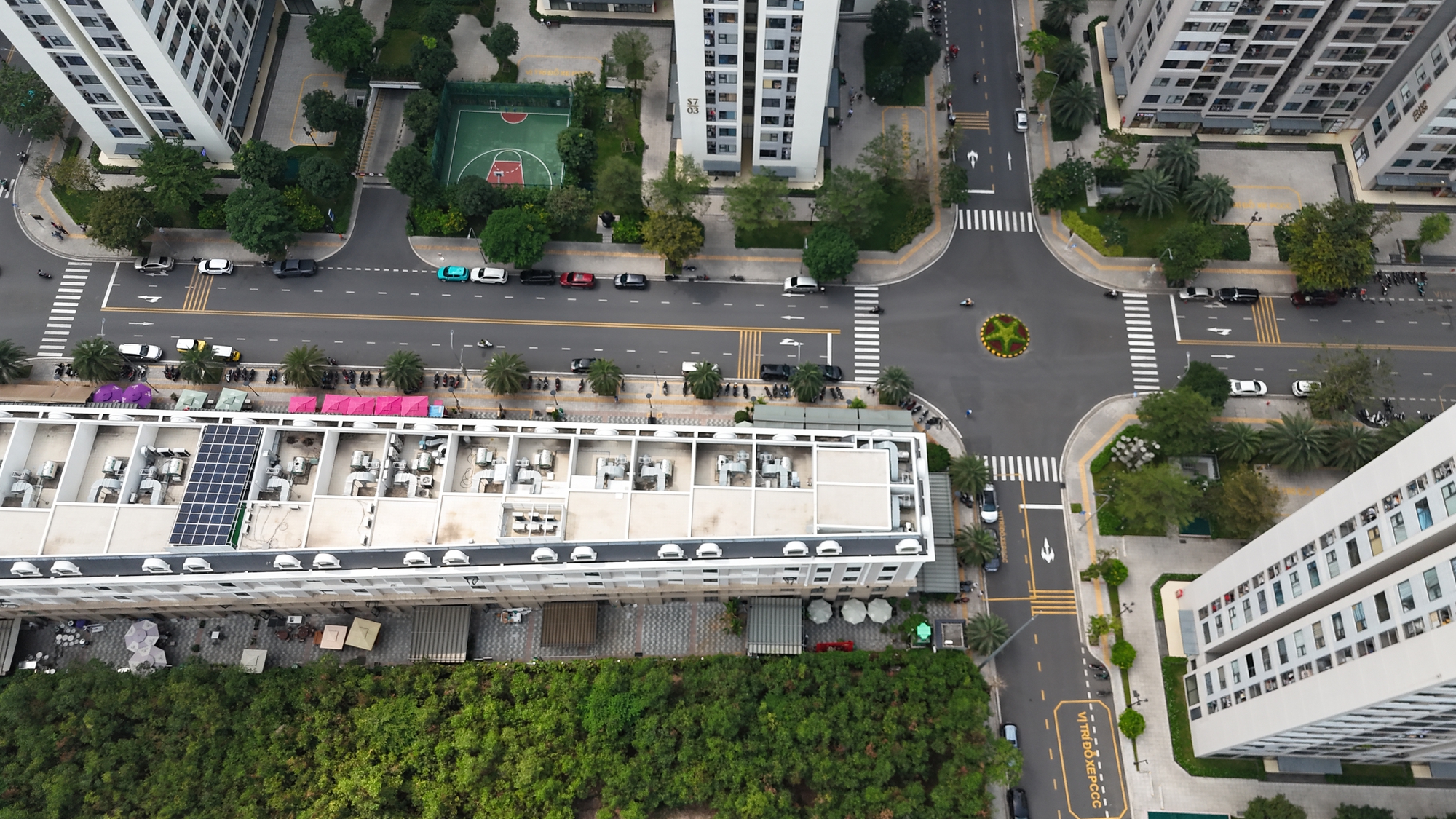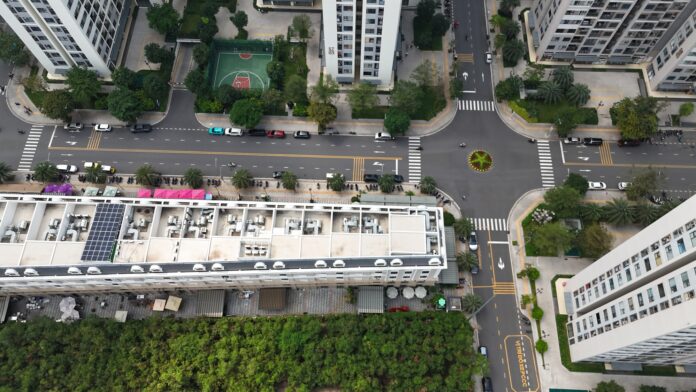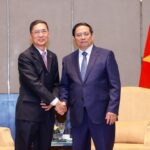During the Standing Government’s recent meeting with ministries, associations, banks, and businesses regarding the real estate market situation, Prime Minister Pham Minh Chinh gave strict instructions on handling price manipulation, speculation, and market exploitation. He specifically directed the Ministry of Finance to urgently research and implement a real estate tax policy for unused land and housing, taxing the difference between the land’s price and the selling price, and establishing a mechanism to deal with unclear transactions.
Urgent Need
Sharing his views on measures to counter speculation and price manipulation in the real estate market, Doan Quoc Duyet, Director of Viet Tin Thanh Real Estate Company, emphasized the need to combine multiple factors for sustainable effectiveness.
He highlighted the importance of constructing a robust and clear legal framework to enable buyers to accurately understand the real estate products they intend to transact. Moreover, Mr. Duyet suggested that the authorities should strengthen the regulation of supply and demand, as many developers currently sell based on available capital rather than market needs, leading to supply-demand imbalances and creating opportunities for speculation.
“The government and ministries should promote the application of technology in real estate transactions to closely monitor market activities and prevent fraudulent entities from conducting fake sales. Crucially, close coordination between ministries is essential to limit misinformation, reduce price manipulation, and stabilize the market,” Mr. Duyet proposed.

Most experts and businesses agree with the Prime Minister’s directive to take strict action to prevent chaos and loss of control in the housing market. Photo: TRANG NGUYEN
Sharing the same viewpoint, Le Hoang Chau, Chairman of the Ho Chi Minh City Real Estate Association (HoREA), expressed that the Prime Minister’s resolute direction indicates that real estate business will be prioritized for development in the coming time. He emphasized that countering speculation, manipulation, and price gouging is imperative for establishing a transparent and healthy market.
Mr. Chau pointed out the necessity of clearly identifying potential manipulators. He provided an example of “price manipulation” in land auctions, where an individual owning multiple lands in an area might intentionally drive up the auction price to benefit from the other lands they own.
“They might put down a deposit of a few hundred million VND to inflate the price of a land plot to tens of billions of VND,” Mr. Chau explained. He also stressed that the association had previously proposed supplementing punitive measures for such behavior in the Law on Asset Auction, but it was not accepted. Therefore, he hopes that in the future, the Law on Handling Administrative Violations will include sanctions such as confiscating the deposit and banning participation in auctions for a certain period to create a deterrent effect.
One of the key solutions proposed by Mr. Chau is to establish a national-level real estate exchange—a platform that concentrates products with clear origins and legal status, distinct from the current private exchanges primarily serving individual apartment transactions. He also suggested increasing the deposit ratio in auctions and tenders to prevent speculation and exploitation, but this should be carefully considered to avoid causing difficulties for genuine homebuyers.
Maximizing the Use of Tax Tools
The Chairman of HoREA also proposed that the government and ministries should concretize additional solutions, including tax policies. He cited the US real estate tax model, which levies a tax of 1.21% of the property’s value annually, helping to regulate and renew the cycle of real estate use.
In Vietnam, the Ministry of Finance is proposing a 20% real estate transfer tax on the difference between the selling and purchasing prices, after deducting reasonable expenses. This is a significant policy that requires a transparent and clear data foundation to build trust and ensure fairness for the people.
However, Mr. Chau noted that applying the same tax rate to multiple houses is unreasonable, as it fails to distinguish between properties with different areas, locations, and values. For instance, small rural houses should not be taxed the same as villas in Ho Chi Minh City.
He also emphasized the need to complete the digital infrastructure, electronic personal identification codes, and a national database of land and housing to lay the foundation for efficient and transparent management and taxation. Additionally, Mr. Chau advocated for effective communication to encourage citizens to declare truthfully and in accordance with the law. “The land price table should be detailed to each plot to ensure accuracy and alignment with the actual market value,” he stressed.
From a professional perspective, Nguyen Van Duoc, General Director of Trong Tin Accounting and Tax Consulting Company, argued that the current real estate transfer tax is too low, encouraging speculation and land hoarding. He analyzed that applying a 2% tax on the total value, regardless of profit or loss, leads to inequality and budget losses.
Meanwhile, the previous rule of taxing 20% of profits was abolished due to challenges in controlling declared prices. However, with advancements in cashless payments and transaction registration systems, Mr. Duoc believes it is time to reinstate this tax to promote fairness and curb speculation.
The expert also proposed building a national database of real estate transactions, strengthening supervision, and enhancing the responsibility of notary organizations and exchanges to enable citizens to prove incurred expenses and facilitate transparent tax management.
Dong Minh Hong, Director of DVL Tax Agency Company, agreed that a 20% tax on profits is reasonable and should be applied to individuals to ensure fairness with businesses. According to Mr. Hong, this tax rate will help reduce real estate hoarding and curb speculative price increases. “In the initial phase, if fraudulent price declaration is discovered, the state can impose criminal penalties for tax evasion, leading to a more transparent and healthy market,” he suggested.
Strictly Handling “Fraudulent Brokers”
Master of Laws – Lawyer Tran Quoc Bao, Ho Chi Minh City Bar Association, emphasized that real estate is a significant asset that many people aspire to own for investment purposes. However, not everyone has sufficient legal knowledge and market understanding, creating a conducive environment for fraudulent entities to manipulate prices and exploit customers’ psychology. He proposed that authorities should take strict action to prevent chaos and loss of control in the market.
According to Lawyer Bao, most fraud cases involve civil transactions, where customers voluntarily and legally sign contracts and make deposits, making it challenging to determine the correct price and take legal action.
For instance, Mai Lien (from District 11, Ho Chi Minh City) fell victim to real estate manipulation and price gouging. She shared that she was lured into purchasing land in Bao Loc (Lam Dong) for VND 1.3 billion, while the actual price was only around VND 300-400 million. Therefore, she hopes for decisive intervention from the authorities to eradicate fraudulent brokers and bring order to the chaotic market.
The Widening of Nguyen Huu Tho Road to 60 Meters: New Developments in Nha Be and Can Giuoc’s Real Estate Market
With the expansion of Nguyen Huu Tho Road, a vital transportation corridor will be established, connecting the Ring Road 2 with the Ben Luc – Long Thanh Expressway, and eventually, the Ho Chi Minh City Ring Road 4. This strategic development addresses the critical need for efficient inter-regional transportation in the southern gateway of the city, facilitating seamless connectivity to the Eastern and Western regions of the South, as well as the network of seaports and the Long Thanh airport.
The Birth of Gold Coast Vung Tau: A Gem Among International Tourist Cities
With an unbeatable central location, premium products, attractive pricing, and the assurance of long-term ownership with a red book, Gold Coast Vung Tau has won the hearts and trust of investors. An impressive 90% of the inventory was sold at the launch event itself, a testament to its appeal and the confidence it inspires.
Meeting the Prime Minister, Leading a Top Malaysian Property Group, Currently Investing in Multiple Projects Valued at Over $5 Billion in Vietnam, with Intent to Invest Further Billions in the Coming Years.
“Mr. Dato’ Chow Chee Wah, Chairman of Gamuda Land Group, revealed that Gamuda plans to invest several more billion dollars in the coming years to expand its business ventures in Vietnam.”
“Government Agencies Collaborate to Develop Data, Implement a Unified Land Valuation System, and Reform Property Taxation”
The Ministry of Agriculture and Environment and the Ministry of Finance are tasked with developing a land price database, with prices assigned to individual land plots based on regional value and standard plots. This move towards a unified land price will serve as the foundation for implementing a property tax policy.





















